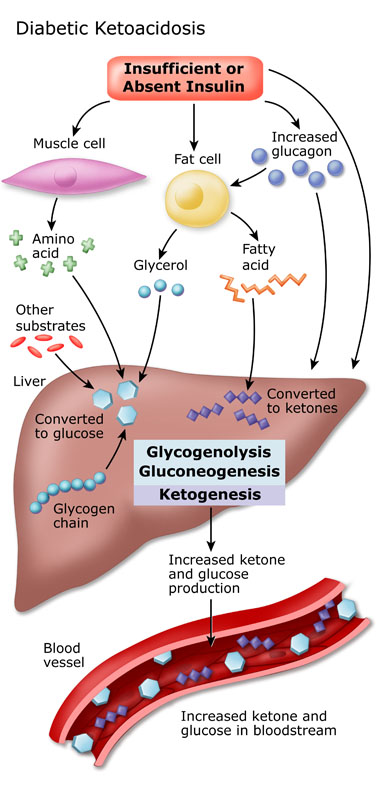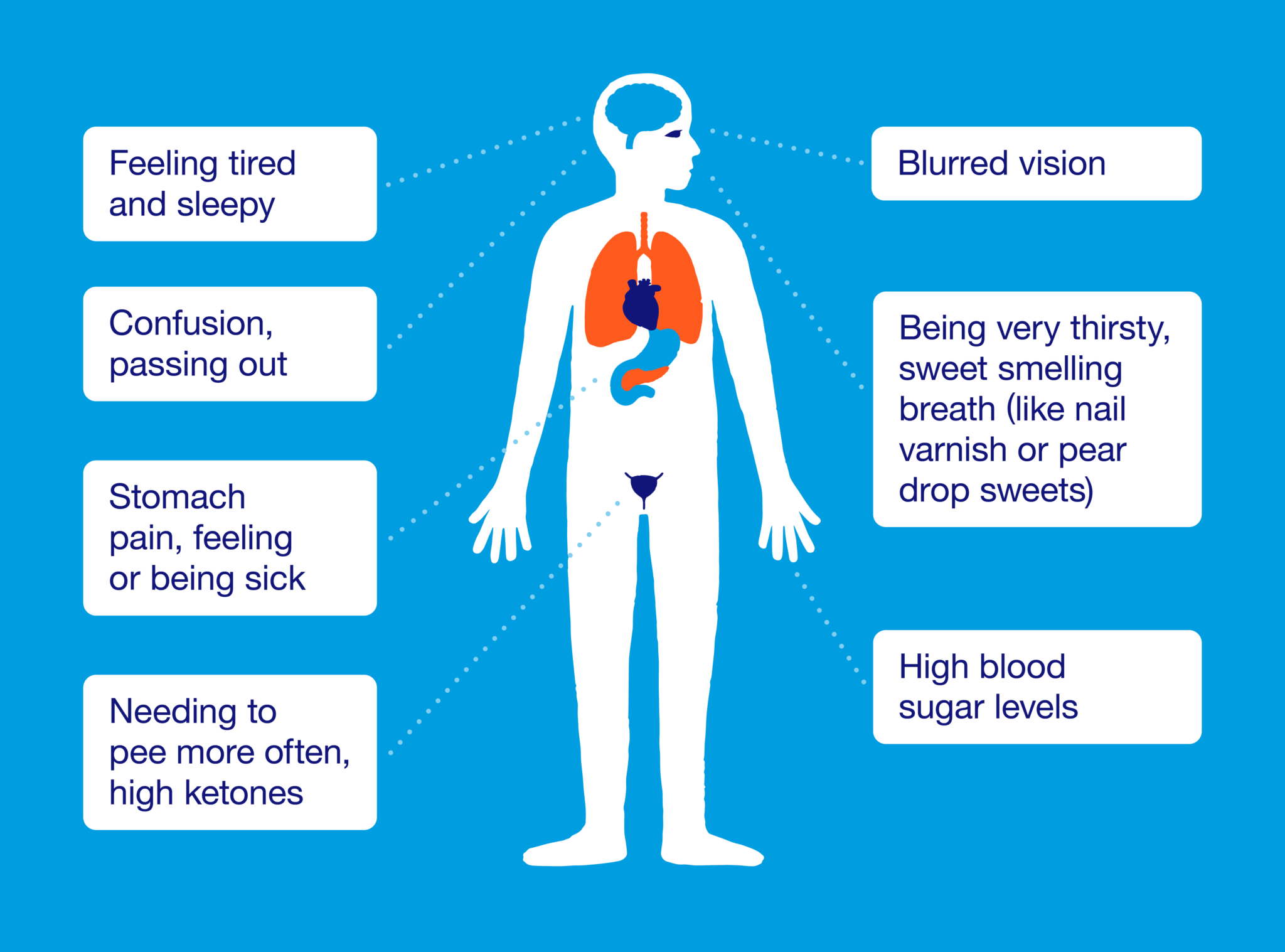ketoacidosis in type 2 diabetes mellitus Diabetes ketoacidosis dka diabética aceite insulin cetoacidosis diabetica pathophysiology ucsf complication alzheimer stepwards ketones acidosis blood luchar dtc aceitedecoco rev1
Today, I want to talk about a topic that affects millions of people around the world: diabetes. Specifically, I will be discussing diabetes mellitus type 1 and type 2, as well as a condition called diabetic ketoacidosis (DKA) which can occur in both types.
Diabetes Mellitus Type 1 and Type 2
 Diabetes mellitus is a chronic condition that affects how your body uses glucose, a form of sugar that is our primary source of energy. In type 1 diabetes, the immune system mistakenly attacks and destroys the insulin-producing cells in the pancreas. Without sufficient insulin, the body is unable to regulate blood sugar levels effectively.
Diabetes mellitus is a chronic condition that affects how your body uses glucose, a form of sugar that is our primary source of energy. In type 1 diabetes, the immune system mistakenly attacks and destroys the insulin-producing cells in the pancreas. Without sufficient insulin, the body is unable to regulate blood sugar levels effectively.
Type 2 diabetes, on the other hand, is characterized by insulin resistance, meaning that the body’s cells do not respond properly to insulin. This leads to high blood sugar levels, as the glucose is not effectively transported into the cells to be used as energy.
Diabetic Ketoacidosis (DKA)
 Diabetic ketoacidosis is a serious complication that can occur in both type 1 and type 2 diabetes, although it is more common in type 1. It develops when there is a severe lack of insulin in the body, causing glucose levels to rise dramatically. In response to the lack of insulin, the body starts breaking down fat for energy instead. This process produces ketones, which are acidic chemicals that build up in the blood and urine. In high levels, ketones can be toxic and lead to a state of ketoacidosis.
Diabetic ketoacidosis is a serious complication that can occur in both type 1 and type 2 diabetes, although it is more common in type 1. It develops when there is a severe lack of insulin in the body, causing glucose levels to rise dramatically. In response to the lack of insulin, the body starts breaking down fat for energy instead. This process produces ketones, which are acidic chemicals that build up in the blood and urine. In high levels, ketones can be toxic and lead to a state of ketoacidosis.
Symptoms of DKA may include frequent urination, extreme thirst, nausea, vomiting, abdominal pain, confusion, and fruity-scented breath. If left untreated, DKA can become life-threatening and requires immediate medical attention.
Managing diabetes, whether type 1 or type 2, involves a combination of medication, healthy eating, regular physical activity, and monitoring blood sugar levels. It is essential for individuals with diabetes to work closely with their healthcare team to develop a personalized management plan.
In conclusion, diabetes is a complex condition that affects millions of individuals worldwide. Understanding the differences between type 1 and type 2 diabetes, as well as the potential complication of diabetic ketoacidosis, is crucial for effective management. If you or someone you know has diabetes, remember that you are not alone, and there are resources and support available to help you navigate this journey.
If you are searching about Pathophysiology Of Diabetic Ketoacidosis - Diabetic ketoacidosis is an you’ve visit to the right page. We have 5 Pictures about Pathophysiology Of Diabetic Ketoacidosis - Diabetic ketoacidosis is an like Diabetic Exchange: Diabetic Ketoacidosis Treatments, Diabetes and Fruity Breath: Causes, Risks, And Treatment and also Pathophysiology Of Diabetic Ketoacidosis - Diabetic ketoacidosis is an. Here it is:
Pathophysiology Of Diabetic Ketoacidosis - Diabetic Ketoacidosis Is An
 ariadnehopkins.blogspot.comdiabetes ketoacidosis dka diabética aceite insulin cetoacidosis diabetica pathophysiology ucsf complication alzheimer stepwards ketones acidosis blood luchar dtc aceitedecoco rev1
ariadnehopkins.blogspot.comdiabetes ketoacidosis dka diabética aceite insulin cetoacidosis diabetica pathophysiology ucsf complication alzheimer stepwards ketones acidosis blood luchar dtc aceitedecoco rev1
Diabetes Mellitus Type 1, Type 2 & Diabetic Ketoacidosis DKA Causes
 www.youtube.comdiabetes type ketoacidosis dka diabetic causes mellitus symptoms
www.youtube.comdiabetes type ketoacidosis dka diabetic causes mellitus symptoms
Diabetic Ketoacidosis: A Common Debut Of Diabetes Among African
 www.endocrinepractice.orgdiabetes type ketoacidosis diabetic americans african between debut among common table
www.endocrinepractice.orgdiabetes type ketoacidosis diabetic americans african between debut among common table
Diabetes And Fruity Breath: Causes, Risks, And Treatment
 mantracare.orgketoacidosis diabetic dka breath treatment complications fruity ketosis symptome mellitus ketones urine mantracare anzeichen abdominal ursachen nausea difficulty remedies
mantracare.orgketoacidosis diabetic dka breath treatment complications fruity ketosis symptome mellitus ketones urine mantracare anzeichen abdominal ursachen nausea difficulty remedies
Diabetic Exchange: Diabetic Ketoacidosis Treatments
 diabeticexchange.blogspot.comketoacidosis diabetic dka diabetes nursing type treatment mechanism ketosis vs symptoms nurse ketogenic sepsis notes signs sugar cancer body memory
diabeticexchange.blogspot.comketoacidosis diabetic dka diabetes nursing type treatment mechanism ketosis vs symptoms nurse ketogenic sepsis notes signs sugar cancer body memory
Pathophysiology of diabetic ketoacidosis. Diabetes mellitus type 1, type 2 & diabetic ketoacidosis dka causes. Diabetes type ketoacidosis dka diabetic causes mellitus symptoms